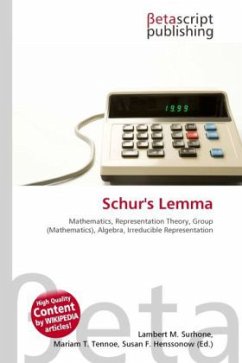High Quality Content by WIKIPEDIA articles! In discrete mathematics, Schur's theorem is either of two different theorems of the mathematician Issai Schur. In differential geometry, Schur's theorem is a theorem of A. Schur. In functional analysis, Schur's theorem is often called Schur's property, also due to Issai Schur. In differential geometry, Schur's theorem compares the distance between the endpoints of a space curve C to the distance between the endpoints of a corresponding plane curve C of less curvature. Suppose C(s) is a plane curve with curvature (s) which makes a convex curve when closed by the chord connecting its endpoints, and C (s) is a curve of the same length with curvature (s). Let d denote the distance between the endpoints of C and d denote the distance between the endpoints of C . If kappa^ (s) leq kappa(s) then d^ geq d. Schur's theorem is usually stated for C2 curves, but John M. Sullivan has observed that Schur's theorem applies to curves of finite total curvature (the statement is slightly different).
Bitte wählen Sie Ihr Anliegen aus.
Rechnungen
Retourenschein anfordern
Bestellstatus
Storno








